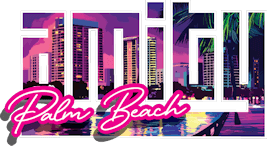
At Amity Palm Beach, we understand the challenges of addiction and the importance of finding the right treatment.
Palm Beach, FL, offers a diverse range of addiction treatment options tailored to individual needs. From detoxification programs to holistic therapies, the area provides comprehensive care for those seeking recovery.
In this guide, we'll explore effective addiction treatment in Palm Beach, FL, helping you navigate the path to lasting sobriety and wellness.
Recent Posts
Palm Beach County faces significant challenges with substance abuse and addiction. In 2021, 8,012 opioid-related deaths were reported in Florida, which is a 5 percent decrease from the previous year. This statistic underscores the urgent need for effective addiction treatment Palm Beach services.
While opioids remain a primary concern, the substance abuse landscape in Palm Beach continues to change. Methamphetamine and kratom-related fatalities both increased from 2020 to 2021. This shift highlights the importance for treatment centers to adapt and address emerging drug trends.
A particularly worrying development is the rise of "tranq dope" (a mixture of fentanyl and xylazine). This dangerous combination poses new challenges for overdose response and treatment. Treatment providers must stay informed about these trends to offer the most effective and up-to-date care for their clients.
Categories
Several factors contribute to the high addiction rates in Palm Beach County:
Community involvement plays a vital role in addressing addiction in Palm Beach County. Local initiatives, such as the allocation of approximately $1 million annually to addiction treatment programs, aim to ensure access to care for all individuals. However, more community-based efforts are needed to create a supportive environment that encourages open discussions and reduces the stigma surrounding addiction.
Effective addiction treatment programs focus not only on individual recovery but also on rebuilding connections and fostering a sense of belonging (essential components for long-term sobriety). The next chapter will explore the various treatment options available in Palm Beach, from detoxification programs to holistic therapies, to help individuals find the right path to recovery.
Addiction in Palm Beach: A Growing Concern
Palm Beach offers a diverse array of addiction treatment options, each designed to meet the unique needs of individuals seeking recovery. Let's explore the range of programs available in the area.
The first step in many recovery journeys involves detoxification. Medical detox programs in Palm Beach provide supervision to ensure safety during the withdrawal process. These programs are particularly important for those struggling with alcohol addiction. The initial step towards recovery often involves a medically supervised detoxification process.
For those who require intensive care, residential inpatient programs offer a structured environment with round-the-clock support. These programs usually last 30-90 days and include individual therapy, group sessions, and holistic activities.
The Opioid Crisis
Outpatient programs provide flexibility for those who can't commit to full-time residential care. Options include:
These programs allow clients to maintain work or family commitments while receiving treatment.
MAT combines FDA-approved medications with counseling and behavioral therapies. In Palm Beach, MAT is available for opioid and alcohol use disorders. A recent study examined whether federal policies regarding prescribed buprenorphine use are being violated in South Florida recovery residences.
Evolving Substance Abuse Landscape
Many treatment centers in Palm Beach incorporate holistic approaches to complement traditional therapies. These may include:
When considering treatment options, it's important to assess individual needs, the severity of addiction, and any co-occurring mental health issues. The right program should offer a balance of medical care, psychological support, and tools for long-term recovery.
The variety of treatment options available in Palm Beach provides a path to recovery for everyone. The next step involves choosing the right program that aligns with your unique needs and goals. Let's explore how to make this critical decision in the next chapter.
Factors Contributing to Addiction Rates
Addiction treatment Palm Beach offers a comprehensive range of options to support individuals on their journey to recovery.
Start with an honest evaluation of your situation. Consider the substances you struggle with, the severity of your addiction, and any co-occurring mental health issues. If you face severe alcohol addiction and depression, you need a program that offers dual diagnosis treatment.
Take your personal preferences and lifestyle into account. Do you need a program that allows you to continue working? Do you prefer one-on-one sessions over group therapy? These factors will help you narrow down your options.
Community's Role in Combating Addiction
Different facilities use various treatment modalities. Some focus on traditional 12-step programs, while others incorporate holistic therapies or cognitive-behavioral techniques. Research indicates that a combination of approaches often yields the best results.
A study found that programs integrating both evidence-based practices and holistic therapies had higher success rates. Look for centers that offer a diverse range of therapies to address all aspects of addiction.
Treatment programs vary in duration and intensity. Short-term programs typically last 28-30 days, while long-term residential treatment can extend to 90 days or more. Research suggests that longer treatment durations are associated with better outcomes, with one study finding that patients staying between 28 and 63 days had one-year recovery rates close to 36.6%.
What Treatment Options Are Available in Palm Beach?
If you can't commit to inpatient treatment, intensive outpatient programs (IOPs) offer a middle ground. These programs provide structured treatment while allowing you to live at home.
Make sure the facility you consider is properly licensed and accredited. Look for certifications from organizations like the Commission on Accreditation of Rehabilitation Facilities (CARF) or The Joint Commission. These accreditations indicate that the facility meets high standards of care.
Verify the qualifications of the staff. A quality program should have a team of licensed and experienced professionals (including doctors, therapists, and addiction specialists).
Medically Supervised Detoxification
Recovery doesn't end when you complete a treatment program. Look for facilities that offer comprehensive aftercare planning. This might include ongoing therapy, support groups, or sober living arrangements.
Some centers provide alumni programs to help you stay connected and supported long after you've completed treatment. These programs can prove invaluable in maintaining long-term sobriety. Addiction treatment Palm Beach facilities often offer comprehensive aftercare support to ensure continued recovery.
Palm Beach, FL offers a wide range of addiction treatment options for those seeking recovery. From detoxification to residential programs and outpatient services, individuals can find a treatment path that suits their unique needs. Addiction treatment in Palm Beach, FL combines clinical expertise with compassionate care to provide a solid foundation for healing and growth.
Residential Inpatient Treatment
The journey to recovery requires courage, and seeking help marks a significant first step. Palm Beach's addiction treatment landscape supports individuals at every stage of their recovery journey. We at Amity Palm Beach offer personalized addiction treatment programs in a supportive environment, dedicated to helping you reclaim your life.
You can take the first step towards a brighter future by exploring addiction treatment options in Palm Beach today. Our team of experienced professionals stands ready to guide you on your path to healing and renewed hope. Your journey to a healthier, substance-free life starts here.
Outpatient Services
Medication-Assisted Treatment (MAT)
Holistic and Alternative Therapies
How to Choose the Right Addiction Treatment Program
Assess Your Individual Needs
Evaluate Treatment Approaches
Consider Program Length and Intensity
Check Credentials and Licensing
Explore Aftercare Options
Final Thoughts
Quick Links
Reach Out
Get Help Today
If you or a loved one is struggling with addiction, Amity Palm Beach is here to help. Our compassionate team provides personalized treatment in West Palm Beach, Florida.
Call us at (888) 664-0182 to start your recovery journey.
Amity Palm Beach
Amity Palm Beach Medical Team



